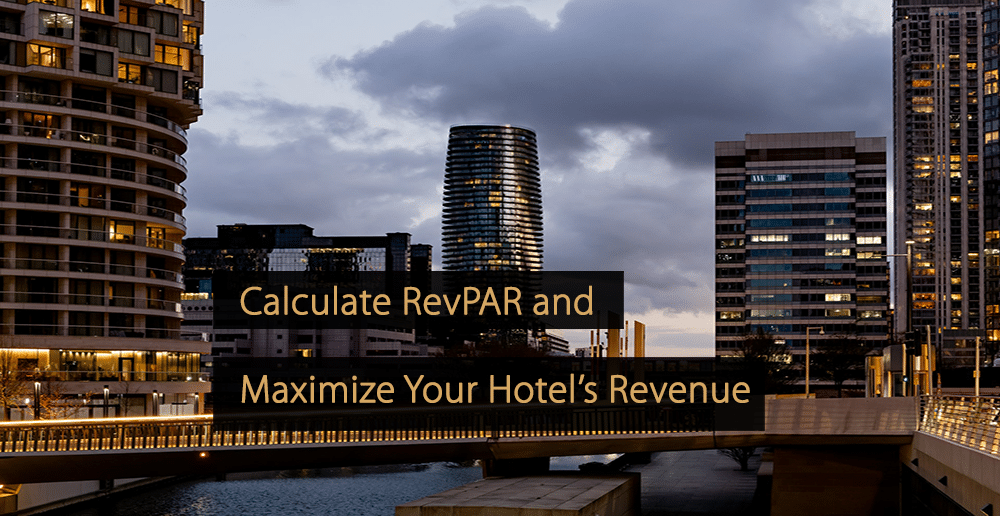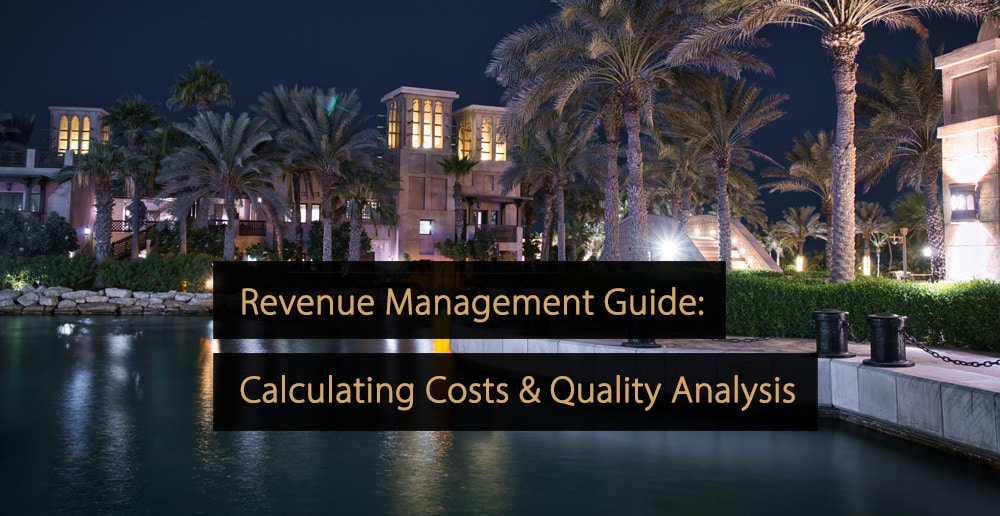Earnings before interest, taxes, depreciation, amortization, or EBITDA for short, is a KPI becoming increasingly prevalent in hotel management. Sometimes referred to as operating cash flow, the metric can be used to determine the operational profitability of a business, taking into account only its key daily running costs.
Table of Contents:
- What Is EBITDA?
- Why Is EBITDA Important?
- What Is an Example of EBITDA?
- Uses and Limitations
- Tips to Optimize EBITDA in Hotel Revenue Management
- More Revenue Management KPIs
What Is EBITDA?
EBITDA, or Earnings Before Interest, Taxes, Depreciation, and Amortization, is a financial metric used to evaluate a company’s operating performance by removing the effects of non-operational decisions. This table explains each component typically excluded when calculating EBITDA and the rationale behind their exclusion. Understanding these exclusions helps clarify how EBITDA provides a clear view of a business’s core profitability, unaffected by financing structure, tax implications, and non-cash accounting practices like depreciation and amortization.
Why Is EBITDA Important?
EBITDA has emerged as an important metric for certain types of businesses, including those in the hotel industry, to keep track of because it is a way of assessing basic day-to-day operational profitability. Eliminating expenses like interest, taxes, depreciation, and amortization from the metric means that performance can be viewed away from accounting, financing, and political decisions, which can otherwise distort financial results.
The earnings before interest, taxes, depreciation, and amortization KPI can be calculated with the following formula:
EBITDA = Total Revenue – Expenses (excluding interest, taxes, depreciation, and amortization).
Video: What Is EBITDA?
What Is an Example of EBITDA?
An example of an EBITDA calculation in the hotel industry is as follows:
Total hotel revenue: $2,000,000
Net income: $1,200,000
Interest expenses: $40,000
Taxes: $400,000
Depreciation and amortization: $20,000
To calculate EBITDA, a hotel adds net income, interest expenses, taxes, and depreciation and amortization together.
$1,200,000 + $400,000 + $40,000 + $20,000 = $1,660,000.
EBITDA = $1,660,000.
The hotel can also calculate its EBITDA margin by dividing EBITDA by total hotel revenue, then multiplying by 100.
($1,660,000 / $2,000,000) x 100 = 83%.
Uses and Limitations
EBITDA is useful for large businesses, especially those with many assets, and is also popular among companies with significant debts. This is because it shows creditors the amount of money available to pay interest and demonstrates potential profitability when accounting and financing decisions are removed.
It is also useful for comparing financial performance against businesses in other regions or industries, where taxes and expenses may differ significantly, which is why it has taken off as a KPI in the hotel industry.
With that being said, EBITDA is not yet recognized as one of the generally accepted accounting principles (GAAP). It is also possible to manipulate the metric to make a hotel look more profitable than it actually is, meaning the KPI may not present an accurate picture of true financial performance.
Tips to Optimize EBITDA in Hotel Revenue Management
Below, you can access some helpful tips that can assist you in optimizing your EBITDA.
1. Cost-Cutting
One way to optimize EBITDA is to focus on cutting costs. In the short term, this could include focusing on local suppliers, reducing labor costs and addressing operational inefficiencies. In the longer term, cost-cutting could also involve tactics like switching to renewable energy, where short-term expense leads to long-term savings.
2. Regular Audits
Carrying out regular audits can help hotels to avoid a number of potentially costly issues, including cyber attacks, compliance issues and fraud, boosting EBITDA. In addition to mitigating risks, audits can also help you understand where you are spending money and where that expenditure could be reduced without hitting the guest experience.
3. Automation
Introducing technology that allows manual tasks to be carried out automatically can help to reduce labor costs and can free up time to focus on tasks that generate revenue and boost EBITDA. For example, you can use a revenue management system to automate price adjustments or use AI chatbots to automate aspects of customer service.
More Revenue Management KPIs
KPI stands for Key Performance Indicator. With KPI you can measure and identify areas of success and failure, as well as trends related to demand and customer behavior. Besides EBITDA, other important Revenue Management KPIs are:
- What Is RevPAR?
- What Is RevPOR?
- Hotel KPIs explained: ADR, REVPAR and GOPPAR
- What is an Occupancy Rate?
- NRevPAR Clearly Explained!
- What is ARPA?
- What is TRevPar?
- RevPAR versus GOPPAR
More Tips to Grow Your Business
Revfine.com is the leading knowledge platform for the hospitality and travel industry. Professionals use our insights, strategies, and actionable tips to get inspired, optimize revenue, innovate processes, and improve customer experience.Explore expert advice on management, marketing, revenue management, operations, software, and technology in our dedicated Hotel, Hospitality, and Travel & Tourism categories.
This article is written by:
Hi, I am Martijn Barten, founder of Revfine.com. With 20 years of experience in the hospitality industry, I specialize in optimizing revenue by combining revenue management with marketing strategies. I have successfully developed, implemented, and managed revenue management and marketing strategies for individual properties and multi-property portfolios.










Leave A Comment